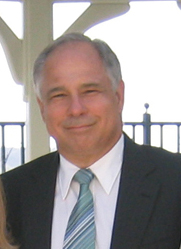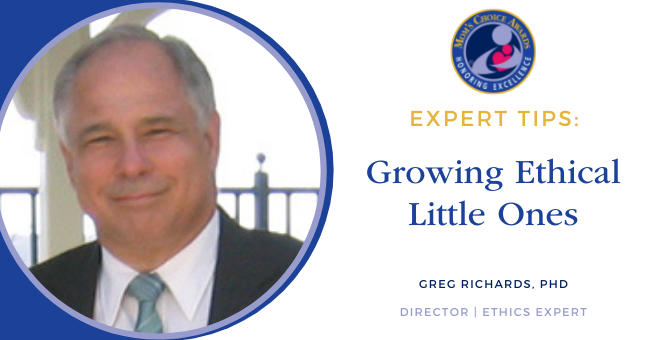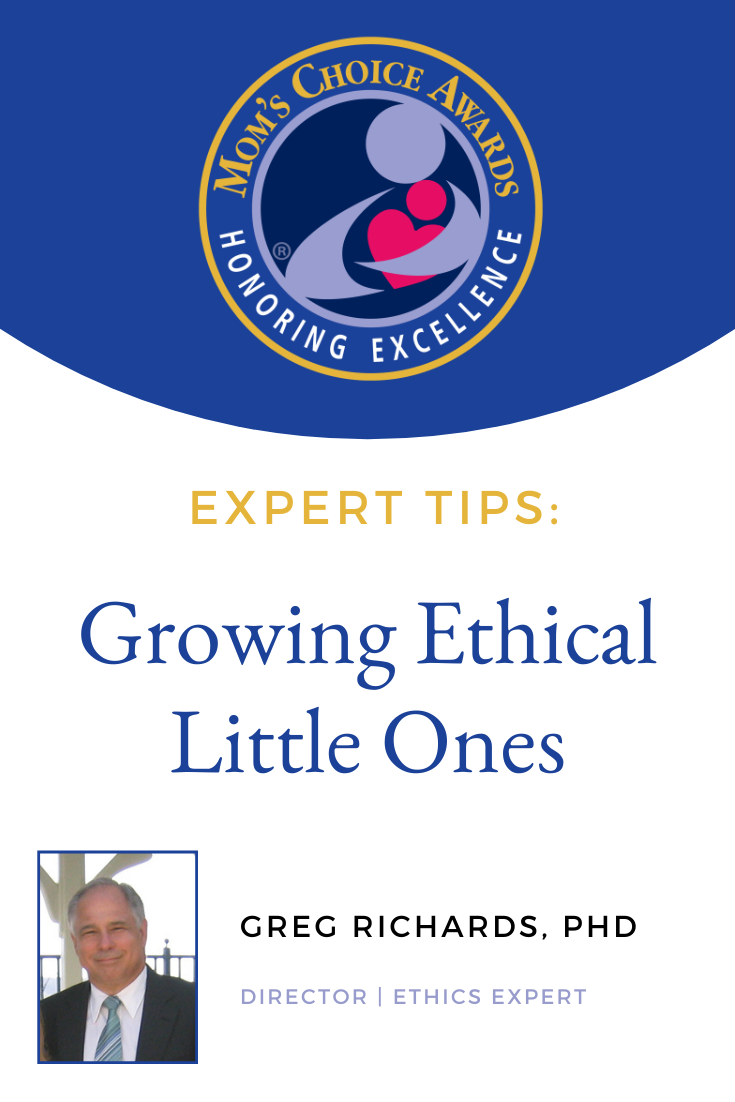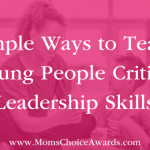 Greg Richards, PhD
Greg Richards, PhD
Director | Ethics Expert
 We all desire to raise our kids to be truthful, fair, kind, happy… Greg Richards’s long research provides eight specific insights for you to ponder.
We all desire to raise our kids to be truthful, fair, kind, happy… Greg Richards’s long research provides eight specific insights for you to ponder.
1. Developing Critical Thinking Skills –
We need to create around our young people a culture—or perhaps more accurately—a counter-culture that stimulates conversation and learning on ethics and character. As in any endeavor, there is a common vocabulary that enables parents, kids, and educators to communicate—words like right, wrong, good, evil, core value, dilemma, character, ethics. Our kids need parents and other significant adults in their lives who take the time to share from their hearts what they believe and cherish and why. Kids need a way to think critically about the messages that bombard them from so many media and choose which messages are consistent with their core values.
2. Teachable Moments –
We need confident parents and other adult guides and mentors who do not shrink from the opportunity to speak up in the face of wrong, disrespect, or injustice and see as teachable moments when kids treat others in cruel or disrespectful ways. We also need to extol acts of kindness and service to others that inspire us all to be better citizens.
3. Importance of Core Values –
We need to help our children and young adults adopt core values that will serve them in their decision-making, relationships with others, and consideration of risky behaviors. The best source comes from the values of parents and extended families, who may also draw on precepts from their religious community. Schools with character education programs may have a list of character traits, periodically emphasizing them in turn. Schools and other organizations may also list standards (sportsmanship standards, the Scout law) that can provide a source for kids as they construct their own list. Families and schools need to emphasize their core values, draw on them regularly, apply them to decisions and discipline, and repeat them as you would any important concept.
4. Those All Important Boundaries and Limits –
We need to be concerned with setting boundaries and limits. Our adult brain actually has a mechanism (in the insular cortex), designed as a survival tool, that warns us instantly of impending harm if we don’t stop. That mechanism is immature in the adolescent brain, except as it applies to peer approval, which can encourage risky behaviors. Of course, effective parents and educators balance limit-setting with encouragement and support. I should note that many young teens challenge their parents with persistent inappropriate, even outrageous, requests and secretly receive a sense of security when their parents put on the brakes.
5. Actions Speak Louder Than Words –
We need to help our kids find positive role models. Ethics, like spiritual growth, is more often caught than taught. “What you are doing speaks so loudly that I cannot hear what you are saying.” Young children soak up our words and actions—and repeat them back to us, often at awkward moments! My wife was at the ready to point out, something one of our toddlers shouted, “He didn’t hear that from me!” Encourage ongoing connections of kids with adults with high ethics and who treasure your children. Grandparents can be great allies in this essential role (and acceptable to parent and child!). The brains of older children and teens release a chemical reward for following peers in novelty, passion, and risk—we may find ourselves countering the messages and priorities of prevailing culture at any given moment.
6. Needed! More Adults Engaged In Bettering the World to help guide our young people.
Particularly at this time in history, our young adults need an antidote to the cynicism, fear, and despair that characterize so much of their worldview. This pessimistic sense of life around them removes much of the incentive to do better in light of a bleak future and to do good when it seems like everyone else is out for themselves. Cynicism poisons ethics. Two ways to disable cynicism are a historical sense of how character and goodness can grow through adversity and how service to others can significantly change our world and ourselves.
7. Cultivate a Sense of History –
We need to convey a sense of history to our children and young adults, including personal history, that demonstrates how resilient, good lives develop through hard times. Those who live the most significant lives grew through struggles that defined their moral character. History teachers can emphasize how heroes like Abraham Lincoln and Rosa Parks struggled and suffered long before their great triumphs. Even more important are the experiences of our children’s personal heroes, like the immigrant grandfather who at great personal cost and risk escaped tyranny to escape to the new world, or the elderly family friend who fought a crippling disease throughout childhood before becoming a world-class gymnast against all odds. Character and resilience grow through the struggles. There are no shortcuts to true greatness and self-satisfaction.
8. Kids and Adults Partnering To Make a Difference –
We need to guide our young people toward opportunities to work alongside adults who are making a difference in the world through service. Here is a most positive way to meet the adolescent need for novelty and risk-seeking, to get those shots of feel-good chemicals from their brain along with earned self-esteem and positive recognition. I have seen many teens’ lives dramatically changed through providing meaningful service to others. And I have seen the lives of many people helped by teen volunteers who are profoundly changed as well. Prevention studies show that significant service experiences provide a kind of vaccination against risky behaviors of many kinds in teens. My experience and research also show that meaningful service to others fosters stronger and more resilient core ethical values.
 About Greg Richards, PhD
About Greg Richards, PhD
Greg Richards is the Founder and Director of Middle Grades Ethics Project in Santa Clarita, California. Thank you to the creators of Pazazz for providing a meeting ground for those seeking to nurture compassion, service, and character in their children. It is a delight!
View all posts by Greg Richards here.







One Comment on “Growing Ethical Little Ones”
Love this